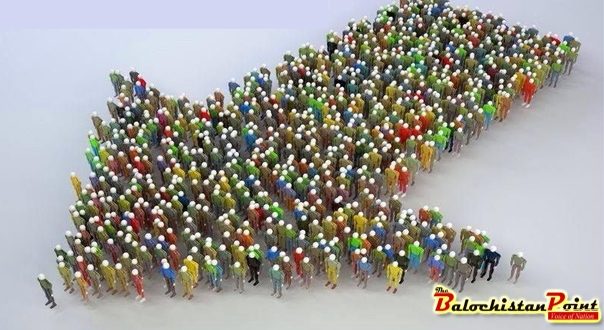By: Dr.Shumaila Sumalani
It was a grey and dismal evening in early October. I was planning the details of a forthcoming event. I was working all alone in the block. I received a call from security officers of my organization. They asked me to leave the place for security reasons. Although there was a large amount of work to be done, but it was essential to follow the instructions designed by superiors. I locked the office and proceeded to Polo Ground. It was a routine practice for me to linger a while there after a hectic or stressful day at the office. That was a place where I would sit alone, muse about the past day and unwind the day’s tensions. There were half a dozen cadets exercising with their horses. The trainer’s words of command were audible in my ears. He was Q his authoritarian orders with words of encouragement. He used expressions like “well done, well done my boy” and “you are fantastic”. The effect of these words could be noticed immediately with the deep smiles and sparkle in the eyes of the cadets as well as in the motion of the horses. The effective leadership and positive vibes of the trainer and the response of the trainees as well as the movements of the horses were amazing. The significance of expressing appreciation for motivating employees and achieving the goals was glaringly obvious.
Success of the organizations depends mainly on the competence and influence of its leaders, the way they deal their employees as well as the processes of interactions they practice. Employers create the systems to communicate the plan, issue directions and guidance to the members of the team, and then administer and control the resources needed to attain the goal. The organizations are made up of employees. They are the main components and are essential to getting things done as planned by the leaders. The role of leadership is the most crucial issue for the organization. The best ways to enable the employees to achieve the goal is to assign them responsibility, give them authority to deliver, and most importantly, to express appreciation and recognition of their work.
Appreciation of work is one of the fundamental needs of the employee. Its expression leads to increased productivity. Employees respond to appreciation which is expressed through recognition of their good work because it indicates that their work is valued and acknowledged by others. When employees and their work are valued, their satisfaction and efficiency rise, and they are motivated to improve or maintain their good work.
Employees’ performance depends on the ability of their leader to acknowledge their qualities and their work. The good leader excels at creating opportunities to provide rewards, recognition, and thanks to his or her staff.
May K. Ash cites that “There are two things people want more than money -recognition and praise.” —
“Research indicates that Workers need interesting work, recognition and awareness of company affairs. When it comes to retaining your best employees, money is not always the key to employee retention” Zig Ziglar. A Westminster College poll found that most workers will work harder if appreciated. They have no reason to work harder than average in absence of appreciation except to retain their jobs.
In his book, Do Nothing: How to Stop Over Managing and Become a Great Leader, J. Keith Murnighan stresses the importance of delegating tasks to competent staff. He writes, “A Great Leader hires the most suitable people for the job and then gives them the freedom to do what they do best. Leaders of this type create healthy work environments for their employees.
It’s a dilemma of our system that the leaders do not empower the employees or recognize their efforts. They also do not communicate clearly with their employees. Jeffrey Pfeffer states “Inability to delegate, appreciate or communicate results in low confidence, under-performance and a high rate of employee turn-over. They and invariably complain about the dearth of loyalty and the dearth of talent”. Ann Coombs, author of The Living Workplace: Soul, Spirit, and Success in the 21st Century (2004), cites that “Loyalty is not dead; it is being killed by toxic workplace management practices that drive people away.”. Employee recognition is uncommon because managers are unable to appreciate its significance.
Research shows that one of the flaws of work environment is the culture of expression of negative feedback by colleagues. This attitude is extremely detrimental to team building. It creates a gap between the leader and employee. This trend might be considered desirable by some leaders. It is extremely detrimental for building teams which are based on trust and mutual respect and can contribute positively. Employees’ mutual recrimination lowers morale and productivity.
Leaders must discourage complaints and backbiting which may result in loss of trust of remaining employees, weakening the chain of command and lowering of employees’ self-respect. An un-skilled leader will not be an acceptable manager to most of the employees and may draw criticism or generate inefficiency. Trained employs are an asset. Good leaders must not allow workers to backbite them as this might result in a loss of these assets.
Appreciation has been proved to be among the best methods of improving work performance and employee engagement. Successful managers always encourage their employees to use their initiative. It is happy employees working as a team that lead to the success of the organisation. Employees feel relieved, excited, proud, and appreciated when they get a positive performance evaluation. Such appreciation strengthens them for the next challenging task and helps ensure success of the company or organization.
Leaders should build people alon.
The writer is working as Assistant Professor, Chairperson Department of Sociology at Sardar Bahadur Khan Women`s University, Quetta, Balochistan Pakistan.
Published in The Balochistan Point on October 27, 2018
 Balochistan Point Voice of Nation
Balochistan Point Voice of Nation




